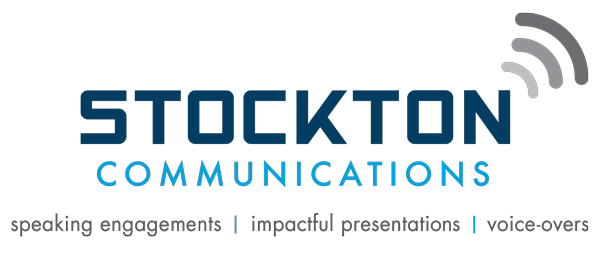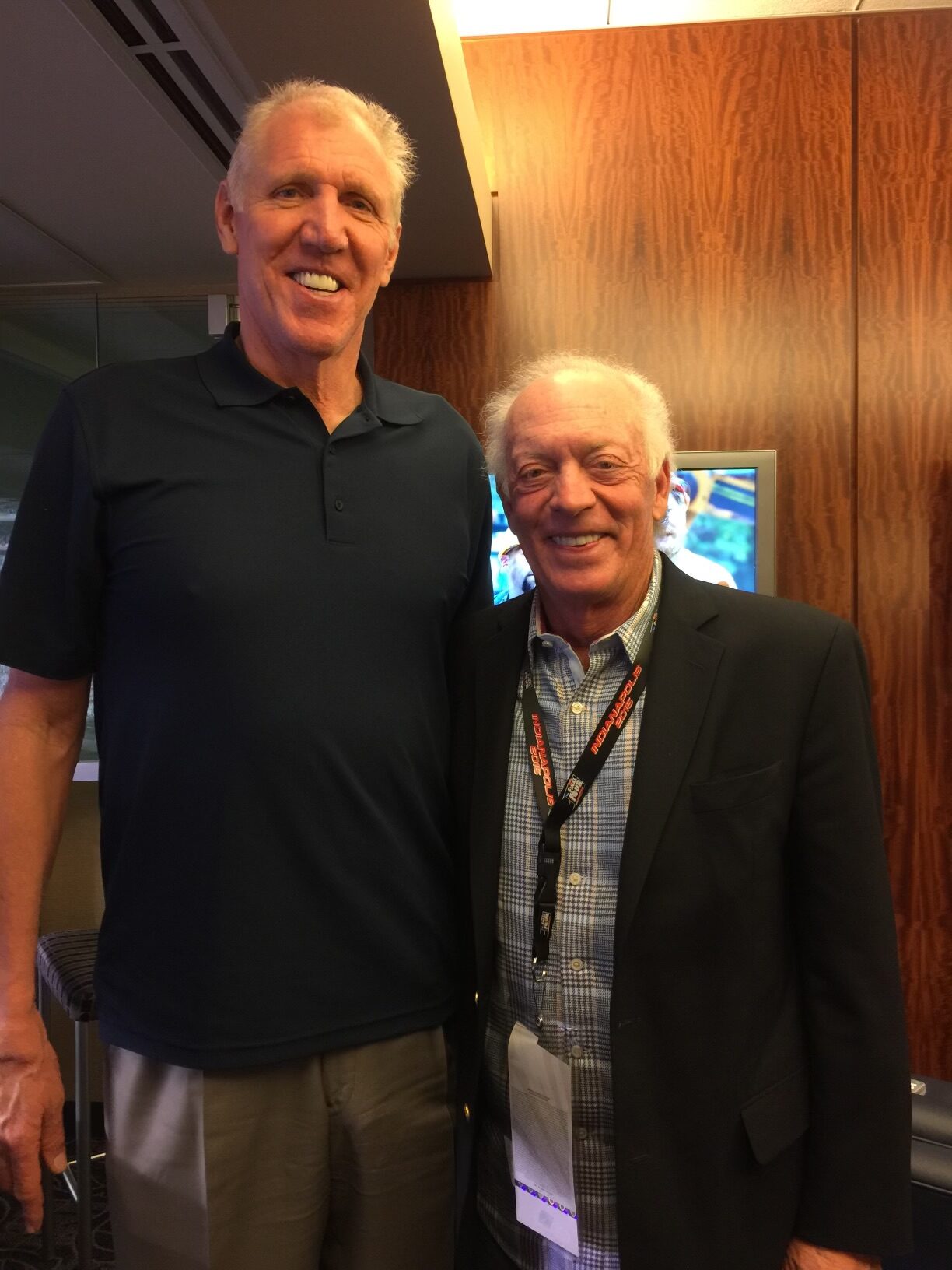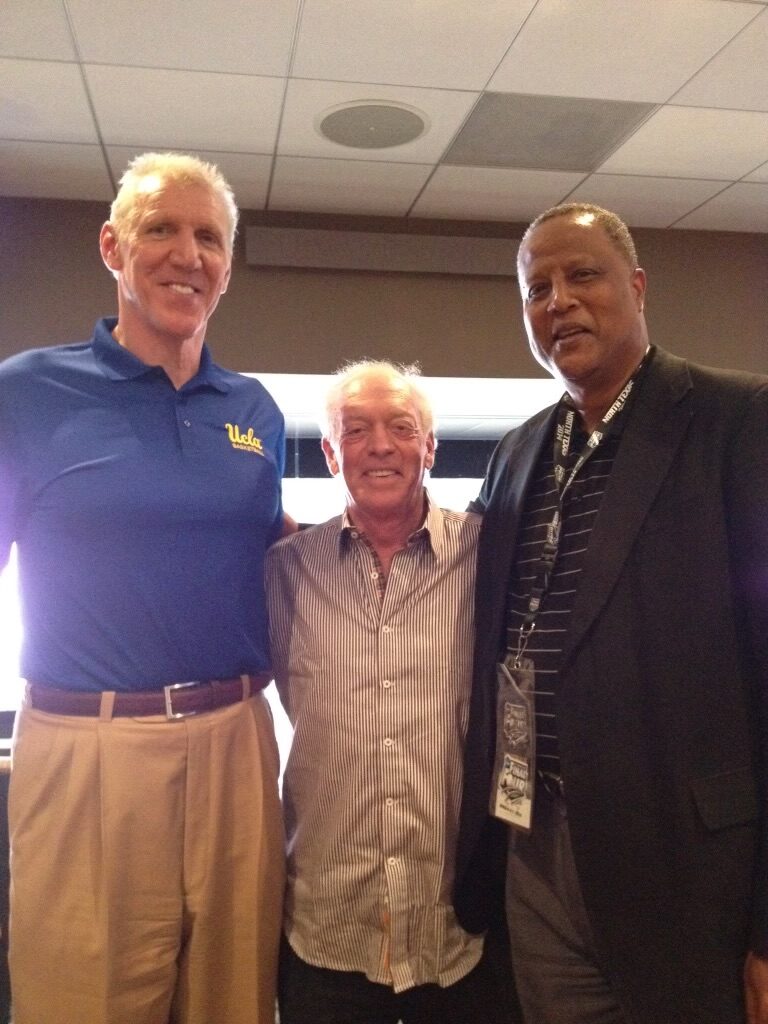Bill Walton (November 5, 1952 – May 27, 2024)
I didn’t get to know Bill Walton until the tail end of his brilliant basketball career.
He passed away at the age of 71 last week and everything said about him, all the tributes, all the comments about the man were on the money.
He was more than one of the greatest to play the sport.
It all started at UCLA during the coaching tenure of John Wooden who guided the Bruins to the most dominant period in the history of college hoops.
You can check out what the 6-foot-11 center accomplished at UCLA as well as in his 15-year NBA career.
Wooden was the perfect first head coach Walton had.
He had the right words at the right time for the big red-head. He was the ideal father figure and the two remained tight as a drum until Wooden’s death in 2010.
The coach had a rule, no facial hair to be worn by his players.
Nonetheless, Walton grew a beard, saying it was his right.
Here’s how the conversation between the two went: “You believe in that strongly” Wooden asked.
“Yes, Coach.” Walton said.
Bill, I respect people who stand up for what they believe,” Wooden replied,
“and the team is going to miss you.”
That afternoon, Walton shaved his beard.
I got to know him in 1986, when finished his career with a championship, his second, during his three year stint with the Boston Celtics.
It was fitting that this champion of a player and human being get to compete with the top NBA franchise of all time.
His best years were behind him but he got to play with the likes of legend Larry Bird and the other winners who wore Celtics green.
Bird and the others really didn’t need him. They had been champions and were at the top of their game. But Bird and his teammates, such as Kevin McHale, Robert Parish, and Dennis Johnson welcomed him with open arms because they knew, whatever Bill Walton could contribute, would make them even better.
And he delivered.
In 1986, he was voted the NBA’s best player to come off the bench, the Sixth Man award.
During the time Walton played for Boston, I was the voice of the NBA on CBS, and we often played chess when the Celtics had days off on the road during a playoff series.
But when tributes pour in for the passing of a superstar, they mostly deal with what he achieved on the field of play.
In Bill Walton’s case, who he was, actually received far more emphasis than what he did.
Walton was a rare human being.
When you were in his presence he made you feel you were the most important person in his life.
You were met with a bright, flashing smile that never seemed to revert to a frown. He was so upbeat, positive, optimistic, caring and endearing, you never wanted to leave.
He was also outrageous, and I say this in the best sense of that term.
He would utter something totally off the wall and humorous that would bring a smile and a laugh.
He conquered his problem as a stutterer and became one of the most interesting must-hear-and-see commentators as a broadcaster.
Those of us in the business have always insisted that the game was the thing.
In Bill Walton’s case, HE was the thing. And it worked beautifully.
What made this man’s temperament and persona so remarkable was the fact that physical debilitations were prominent not only in his athletic career but in his life.
He underwent 37 orthopedic surgeries, particularly on his foot.
He had ankle problems that were so severe that he had both his ankles surgically fused.
But it was in 2009, that he underwent an eight-hour spinal fusion operation. Titanium rods and four-inch bolts were inserted in his back and for a year he literally could not get up from the floor. All he could do was crawl. He admitted that it nearly destroyed him.
In 2010 Bill called me and asked if I would participate in a project for McKesson Pharmaceuticals that would be held during the Final Four of the NCAA basketball championship.
It was a novel undertaking, and for six years, we formed a team that would provide an entertaining weekend on the biggest weekend in the sport, that would enhance McKesson’s invitation of its leading pharmacists throughout the country.
They would be there for a three-day conference with speakers who would bring them up-to-date on the latest in the pharmaceutical profession and a discussion of ideas.
To make the occasion fun and enjoyable, were tickets to the national semi-finals on Saturday afternoon, and the national championship game on Monday evening.
McKesson would have two suites at the stadiums where the games were played and the guests would enjoy food and drink.
Bill Walton was the host, and he knew the names of all the clients, spending time with virtually everyone personally.
But there was more.
There would be gatherings of the top college coaches who weren’t competing to talk about their sport.
But there was more.
On the Sunday between the semi-finals and finals, there would be a basketball game held at a prominent high school gymnasium.
They would divide the clients into two teams, and donning uniforms with their names emblazoned on the back, they would play a game.
Bill would coach one of the teams, and he would bring in NBA stars and superstars to coach the other squad.
How about, Kareem Abdul-Jabbar, Patrick Ewing, Clyde Drexler, to name a few?
My job, besides mingling with the group and hosting the basketball talks, was to serve as the public address announcer for the game.
I would actually do the play-by-play of the action, making comments on the players and the so-called “strategy” by the two coaches, which would be heard by the everyone on the court and the families of the “players” watching in the bleachers.
It was hysterical.
I would second-guess the kind of shots taken on the court, as well as the “coaching” ability of Walton, who would come to where I was sitting, take hold of the microphone, and criticize his players for not following his orders.
It was entertaining for everyone.
It made for a light-hearted afternoon, and when you include lavish dinners, a wonderful weekend.
It was unquestionably something that went beyond my usual duties as a broadcaster, and the key to its success was Bill Walton.
He was the figure who orchestrated the weekend, and it was at those six McKesson events, I got to know the man.
Bill Walton will be missed.
He was bigger than life when he walked into a room.
Sure, his size was a major factor.
But it was so much more.
His electricity, joy, and utter sincerity in dealing with folks from all walks of life set him apart.
One of a kind.



